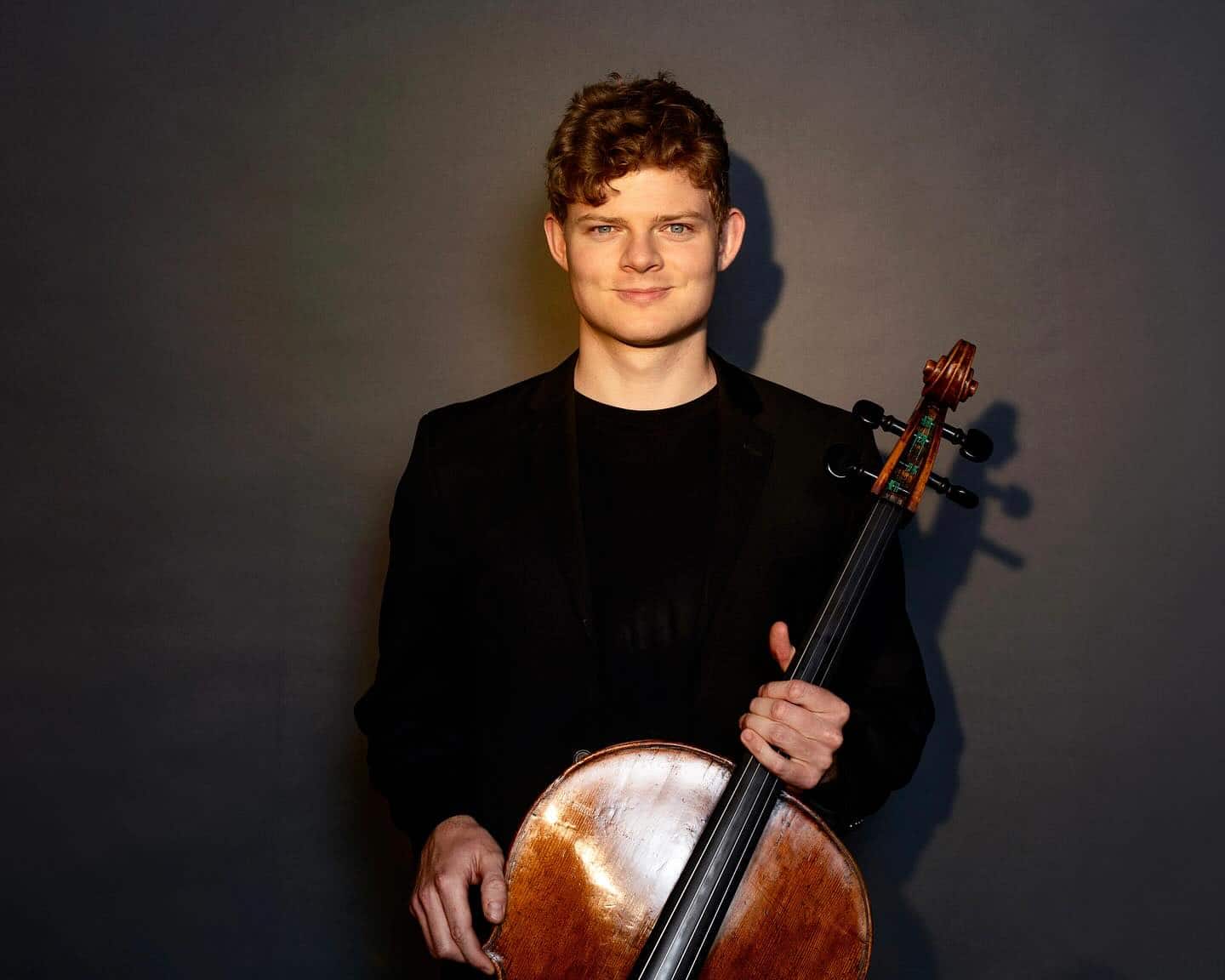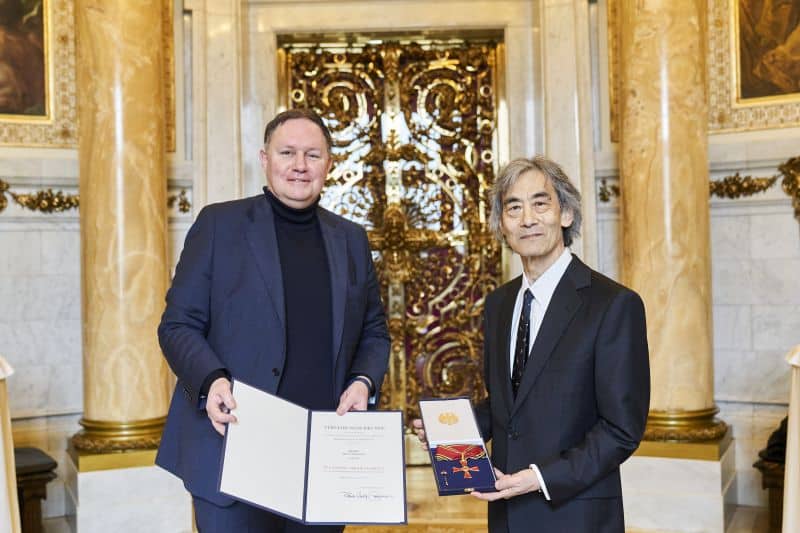Berlin conductors unite against budget cuts
OrchestrasKirill Petrenko, Christian Thielemann and Joanna Mallwitz have put their signatures to an appeal to the senate, calling on it to reverse planned budget cuts.
Statements below:
Joana Mallwitz, chief conductor and artistic director of the Konzerthausorchester: “We should all realise by now that we need to strengthen the core of our society and its cohesion, and that we need to give our cultural identity a positive image. So our aim must be to make it even easier to have access to music and culture. The damage that would be caused by cuts to the cultural budget would be immense and would not only severely affect us as a cultural organisation, but also jeopardise the cohesion of our society as a whole.”
Kirill Petrenko, chief conductor and artistic director of the Berliner Philharmoniker: “If we want to maintain Berlin’s extremely important cultural diversity and continue to attract the best in their field from all disciplines, we must not tamper with the financial foundations of our institutiuons, let alone call their very existence into question.”
Christian Thielemann, general music director of the Staatsoper Unter den Linden: “Berlin’s classical music scene is unrivalled, and has a worldwide reputation. In addition to concerts in the city, we all contribute to making Berlin synonymous with cultural excellence through our tours and media broadcasts. Do the politicians really want to allow such a devastating message to be sent out from Berlin to the rest of the country?”
Joint statement by the artistic directors and general managers: “Culture is the heart of Berlin – it attracts people from all over the world, is an important economic factor, creates jobs and makes our city worth living in. Our city’s cultural institutions are not only places of art with international appeal, but are also urgently needed to maintain Berlin’s reputation as a location for business. One thing is clear: cuts in the cultural sector would massively damage the city of Berlin in the long term.”
Philip Bröking, artistic director and opera director, Komische Oper Berlin
Susanne Moser, artistic director and managing director, Komische Oper Berlin
Sebastian Nordmann, director of the Konzerthaus Berlin
Anselm Rose, managing director of ROC Berlin – Rundfunk Orchester und Chöre GmbH
Dietmar Schwarz, general manager, Deutsche Oper Berlin
Elisabeth Sobotka, artistic director, Staatsoper Unter den Linden
Christian Spuck, artistic director, Staatsballett Berlin
Georg Vierthaler, general director, Stiftung Oper in Berlin
Andrea Zietzschmann, general manager, Berliner Philharmoniker Foundation






As usual, these pompous “VIP’s” forget that flying around the world first class on someone else’s dime, to rehearse the same old works and tell their same old stories to players on perhaps 1/50 of their income, doesn’t mean that anyone of actual importance gives a damn about their silly opinions and “appeals”.
Whose appeals would get your attention then? Because hundreds of livelihoods and the sustainability of one of the world’s cultural capitals are stake. It is all of us, not just the VIPs, who lose. Meanwhile, their opinions are at least of greater magnanimity than yours.
Something that actually matters. Not this.
The rats start to show their greedy faces
Cuts = lower salary, innit?
No. It means hundreds lose their jobs and society is poorer. Your misanthropism is sad.
If expensive / extensive tours would be cut, and the immense salaries of conductors reduced to half, this would probably already offer most of the necessary savings.
If these cultural warlords are really so much concerned about the art form and its place in society, that would be the FIRST idea that would come up.
Hard to disagree with that!
Non significa solo stipendi più bassi,ma anche mancate assunzioni,mancata formazione.
Yawn. God forbid they decrease their fees to save culture.
If they did that, Mallwitz might leave and go somewhere else. Then what would Berlin do? It’s too horrific to imagine.
Wait until she is added to your sommerliche Frauenfest…
We can also expect major sponsors pulling out, saving their own assets and asses.
Thus, governmental support is becoming all the more important, but not just in the form of financial support.
It is high time to seriously invest in what once was referred to as the “country of poets and thinkers”.
But how, when a completely technocratic society has already been imprinted to invest in (electric) cars rather than in education and culture?
Totally exaggerated. The budgets dedicated to the arts, and cultural institutions in Germany are bigger (in relation to the population) than in any other country in the world – maybe except France. So, also if cuts are felt necessary, there probably will still be more than enough in terms of resources.
Other countries are not relevant in this context.
Joe has to go.
Which Joe? Clarify.
https://www.dw.com/en/joe-chialo-ex-metal-singer-becomes-berlins-new-culture-senator/a-65447376
The concert with the Berlin Philharmonic last weekend on their Digital Concert Hall revealed something I didn’t expect: a large number of empty seats. Not just one or two scattered around. Many vacancies. It could have been the music: Prokofieff’s Symphony-Concerto for cello and Schoenberg’s Pelleas & Melisande. How could this be? If music were so important to the Berliners, why the empty seats? Or maybe they just want to hear the same old standard repertoire…again. Maybe it was one of the concerts this season without a Bruckner symphony? Or just maybe Berlin has so many classical entertainment options that there’s not enough audience to support it all? Just asking.
It could also be that a youngster like Shani doesn’t sell while if it were Barenboim the hall would be packed – even if they would play Stockhausen’s complete “Licht” cycle.
I’m sure the name of Schönberg was sufficient.
While Pelleas und Melisande is an early work, tonal and very German in terms of bulk and heaviness.
I’m guessing that a program of Schönberg Op.5 and Dvorák concerto (even with Weilerstein) would have sold much better.
That’s not exactly a program I’d be dying to go see/hear either. I’d want something to break up the heavy mood that isn’t too long, like maybe Ravel’s “Le Tombeau de Couperin” for instance.
Sounds like the Met: scads of empty seats. A general crisis in classical music.
We all love Thielemann
I read it that they are protesting budget cuts to orchestras & the industry, not to their own salaries?
Exactly.
The three are not even talking about the same thing, they have diametrically opposed visions of culture and society:
Mallwitz: “the cohesion of our society”
Petrenko: “cultural diversity”
Thielemann: “cultural excellence”
Cohension is incompatible with diversity, and with diversity, excellence becomes relative.
Mallwitz imagines cohesion as integrating minorities by giving them acess to German cultural institutions (as in, everyone is welcome to the Konzerthausorchester)
Petrenko imagines diversity as proliferating different cultures and their institutions (as in, the Philharmonie is great, but so is the Şehitlik-Moschee, you can go to either, or neither)
Thielemann imagines excellence as advocating the supremacy of German culture (as in, come to the Staatsoper for Meistersinger to experience the glory of “die heil’ge deutsche Kunst”)
You really have no idea what you are talking about.
“Cohesion is incompatible with diversity, and with diversity, excellence becomes relative.”
Is that so, I wonder.
Diversity under the umbrella of shared values, which offers cohesion, is surely possible, as excellence – depending on context – is not threatened by diversity. You can have a great Meistersinger Prelude in one hall and a beautiful concert of ancient Muslem guzzles in another hall. The problem only arises where Western classical music in Western countries looses its anchoring in location and non-Western music events demand an equal share in funding from governments, entirely based upon legal democratic processes.
Is a musical art, or any serious cultural art form, only localised in some virtual imaginary field? or does it have its roots in a geographic area? For instance, should Indian traditional art forms have priority status in India? And Western traditional art priority in the West?
Here, universalism and locality rub against each other in an uneasy dance.
https://www.euronews.com/2019/05/10/the-two-layers-of-western-society-view
I’m with Thielemann on this.
They’re all full of it and of themselves.
No one wants to clobber the arts, but Berlin musicians have been living in a gilded cage for decades. Can the city really sustain three full time opera houses? The Deutsche Oper only exists because the Staats- and Komische were both in the Soviet Zone, and the Wall came down nearly 35 years ago.
The Deutsche Oper was founded – as Deutsches Opernhaus – in 1912.
Keep Europe’s high culture through these maestros and orchestras that distinguishes the continent from celebrities-worshiping Americans.
“With one month left in the European leg of the Eras Tour, Taylor Swift fans are scrambling to get a ticket to her concert. Swift’s performances have already been a massive success, with sold-out shows and significant fan engagement across all venues. Pricing remains the key factor that fans, city leaders, and economists follow.”
https://www.forbes.com/sites/jessicamendoza1/2024/06/19/how-the-eras-tour-adapts-to-european-economic-dynamics/
In Europe Conducting is more about ego than music.Thank god most of them are a little more level headed here in the UK.